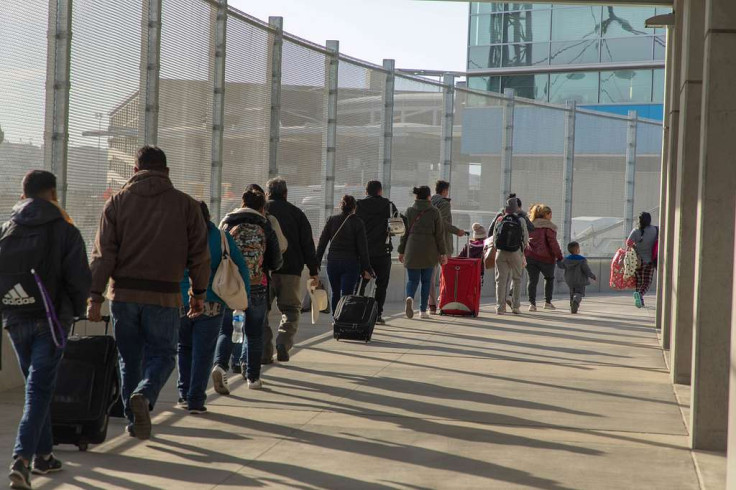
President Joe Biden's proclamation on the border restricts asylum requests, but there are at least three types of immigrants who will not be affected.
According to an analysis by the American Immigration Council, the restriction will not apply to unaccompanied children, or to people the U.S. government determines are victims of "a severe form of trafficking in persons."
The new asylum rule will also not apply to those who make an appointment through the CBP One application, which allows immigrants with a sponsor in the United States to make an appointment at a legal entry point, where the Customs and Border Protection (CBP) office will attend to that person.
At present, there are roughly 1,450 people can make appointments to present themselves for asylum using the CBP One app a day. As the American Immigration Council explains it:
"The restrictions on asylum and protection triggered by the "emergency border circumstances" being in effect do not apply to people who present themselves at ports of entry (official border crossings) with an appointment, like those provided through the CBP One app. These people also do not count toward determining when the emergency is put into place and when it can be lifted. This is consistent with the Biden administration's insistence that it is directing people to seek asylum at ports of entry rather than by crossing irregularly and presenting themselves to Border Patrol.
This last exemption was also confirmed by White House advisor on immigration issues Blas Nuñez-Neto in a conference with Hispanic media on Wednesday: "I want to emphasize that people will still be able to present themselves in a safe and orderly manner at a point of entry through our mobile application CBP One," he said.
Elsewhere in its analysis, the American Immigration Council, provided the following insights:
- It is quite possible that the United States will see lower levels of border apprehensions in the coming weeks, consistent with the "wait and see" period that has followed past border crackdowns.
- It is also possible that the impact of these policy changes—most importantly the "shout test," the biggest change to previous U.S. border policy—will be significant, allowing the U.S. to remove more people and release fewer into the United States.
- Reducing border crossing levels for the next six months or longer will require far more to do what it has tried, and failed, to do for a decade: stop people from fleeing their homes, in the midst of a global displacement crisis, by making life harder for some of those who have already arrived in the United States.
- The United States should focus on strengthening the asylum system itself and provide new pathways for people to come without feeling forced to cross the border.
© 2024 Latin Times. All rights reserved. Do not reproduce without permission.







